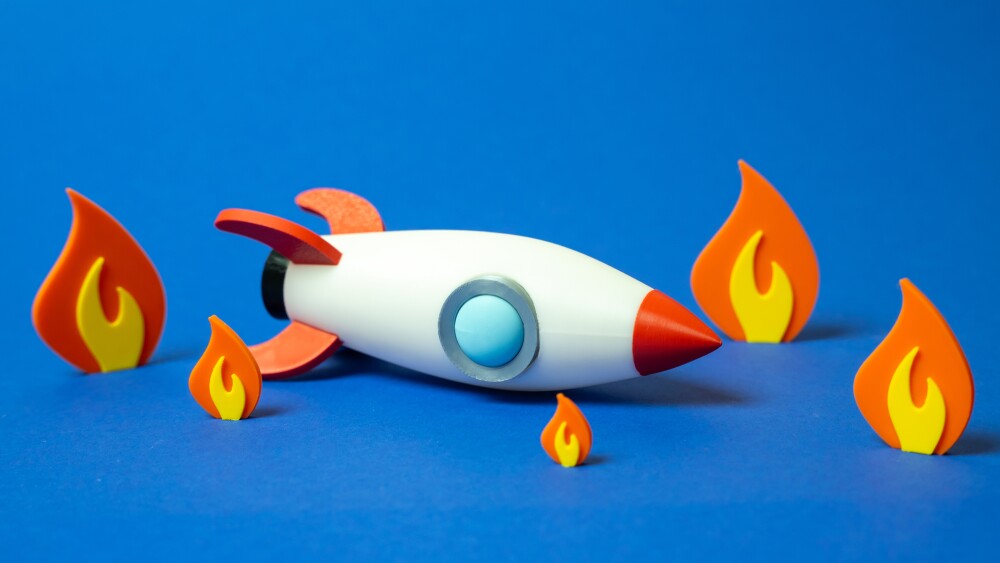MISSION VIEJO, CA--(Marketwired - June 26, 2013) - Aeolus Pharmaceuticals, Inc. (OTCQB: AOLS)
- Data presented at 7th Annual NIH CounterACT Network Research Symposium
- AEOL 10150 improved survival up to 82 percent over 48 hours after exposure
- The improvement in survival correlated with clinical scores, blood oxygenation and airway obstruction
- Aeolus plans to meet with the FDA and discuss a pivotal trial design and an acceptable second species for approval under "the Animal Rule"
Aeolus Pharmaceuticals, Inc. (OTCQB: AOLS), a biotechnology company developing compounds to protect against radiological and chemical threats with significant funding from the US Government, announced today that researchers from National Jewish Health, the University of Colorado and the US Army Medical Research Institute for Chemical Defense ("USAMRICD") have completed third and fourth studies confirming that AEOL 10150 provides significant lung protection and significantly improves survival in rats exposed to whole mustard gas. Data were presented at the 7th Annual CounterACT Countermeasures Against Chemical Threats Network Research Symposium in Washington, D.C. There are currently no effective treatments for mustard gas exposure and AEOL 10150 is a major focus of a sponsored research grant awarded by the National Institutes of Health ("NIH") CounterACT program to the University of Colorado and National Jewish Health to identify an effective treatment. Sulfur mustard gas has been used in warfare since World War I and continues to pose a threat to civilian and military personnel. Mustard gas exposure can cause blistering of the skin as well respiratory injury, fibrosis and death.
"AEOL 10150 continues to demonstrate significant protective effects in rescuing the lung against the deleterious effects of sulfur mustard vapor resulting in major improvements in survival and lung function," stated Brian Day, PhD, Professor and Vice Chair of Research the Department of Medicine at National Jewish Health and Investigator for the CounterACT Center of Excellence in Denver, and Chief Science Officer of Aeolus Pharmaceuticals, Inc. "These data affirm our earlier studies where AEOL 10150 protected the lung against sulfur mustard and the half-mustard, 2-chloroethyl ethylsufide."
Protects Lungs When Administered After Exposure
Four separate studies using 85 rats and comparing 2 different AEOL 10150 dosing regimens conclusively demonstrated that AEOL 10150 improves survival against an LD60-70 sulfur mustard gas exposure. AEOL 10150 improved sulfur mustard gas survival up to 82% over 48 hours. The improvement in survival seen with AEOL 10150 treated animals after sulfur mustard gas exposure correlated with improvements in clinical scores, blood oxygenation and airway obstruction. The best improvements in survival and lung function occurred with the AEOL 10150 dosing regimen of 5 mg/kg body weight given every 4 hours by subcutaneous injection (p < 0.0004).
The primary endpoints in these studies were survival and blood oxygen saturation. Secondary endpoints included clinical scores, blood gas and histopathology for cast formations. AEOL 10150 or PBS was given to rats one hour after sulfur mustard vapor exposure and repeated every 4 or 8 hours. Forty-eight hours after exposure, lung edema was assessed by changes in the bronchoalveolar lavage (BAL) protein levels. At euthanasia, 48 hours after exposure, AEOL 10150 significantly improved (p < 0.0001) pulse oximetry, and AEOL 10150 treated rats had improved blood oxygenation throughout the study period. AEOL 10150 reduced clinical scoring of respiratory quality and activity by more than 60% at the time of euthanasia (p < 0.005), and improved clinical scores were seen throughout the study period. Treatment with AEOL 10150 also restored blood gas parameters to near normal levels, including: pO2 (p < 0.001), pCO2 (p < 0.0016) and pH (p < 0.0006). Finally, AEOL 10150 treatment reduced airway cast formation by 50% at 24 hours (p < 0.017).
In prior studies AEOL 10150 reduced lung edema (p < 0.05), decreased SM-induced increases in macrophages (p < 0.05) and epithelial cells in BAL fluid (p < 0.05). In all three measurements AEOL 10150 provided approximately 100 percent protection -- with levels approximating that of the control animals in the study. These results indicate that AEOL 10150 significantly improves survival and attenuates lung injury from mustard gas exposure and may provide an effective countermeasure against mustard gas-induced lung injury.
"This study confirms AEOL 10150's potential as an effective countermeasure for mustard gas exposure. Given the dramatic improvements in survival and reductions in lung damage that we have seen in this and former studies, Aeolus plans to meet with the FDA to discuss the design of a pivotal study in rats, and an appropriate second species to satisfy the requirements for approval under the animal rule," stated John L. McManus, President and Chief Executive Officer of Aeolus Pharmaceuticals, Inc. "We are also grateful to NIH CounterACT for their support of this program, and to Dr. Day and Dr. Carl White, who have provided great leadership to this program."
CounterACT Center of Excellence
In 2011, the NIH, through its Countermeasures Against Chemical Threats Research Network (CounterACT) awarded a five-year, $12.7 million grant to Carl White, MD and Brian Day, PhD of the University of Colorado Anschutz Medical Campus and National Jewish Health, both in Denver, Colorado. The grant was awarded to continue the development of AEOL 10150 as a medical countermeasure (MCM) against mustard gas exposure (lung and skin) and chlorine gas exposure (lung). Also included in the grant is support of research looking at tissue plasminogen activator (TPA) and Silabilin as MCMs against sulfur mustard gas exposure.
Potential for AEOL 10150 as a Countermeasure Against Chemical Threats
AEOL 10150 has shown significant protective effects against radiation, mustard gas, chlorine gas, phosgene gas and nerve agents in animal models. A compound with the potential to protect against multiple threats would be of significant benefit in both the military and civilian efforts to protect citizens against potential threats. The United States Food and Drug Administration (FDA) has a special "Animal Rule" under which compounds may be approved for use against chemical and nuclear threats on the strength of animal efficacy studies, which allows the potential for an accelerated approval path versus conventional pharmaceutical applications.
About AEOL 10150
AEOL 10150 is a broad-spectrum catalytic antioxidant specifically designed to neutralize reactive oxygen and nitrogen species. The neutralization of these species reduces oxidative stress, inflammation, and subsequent tissue damage-signaling cascades resulting from radiation exposure. AEOL 10150 may have a profound beneficial impact on people who have been exposed, or are about to be exposed, to high-doses of radiation in the treatment of oncology.
AEOL 10150 has performed well in preclinical and non-clinical studies, demonstrating statistically significant survival efficacy in an acute radiation-induced lung injury model, and was well-tolerated in two human clinical trials. The Company believes it could have a profound beneficial impact on people who have been exposed, or are about to be exposed, to high-doses of radiation, whether from cancer therapy or a nuclear event.
About Aeolus Pharmaceuticals
Aeolus Pharmaceuticals is developing a platform of a new class of broad-spectrum, catalytic-antioxidant compounds that protect healthy tissue from the damaging effects of radiation. Its first compound, AEOL 10150, is being developed for oncology indications, where it is used in combination with radiation therapy. It is also being developed, with funding by the US Department of Health and Human Services, as a medical countermeasure against chemical and radiological weapons, where its initial target indications are as a protective agent against the effects of acute radiation syndrome and delayed effects of acute radiation exposure. Aeolus' strategy is to leverage the substantial investment in toxicology, manufacturing, and preclinical and clinical studies made by US Government agencies in AEOL 10150, including the contract with BARDA valued, with options, at up to $118.4 million, to efficiently develop the compound for use in oncology. For more information, please visit Aeolus's corporate website at www.aeoluspharma.com.
Forward-Looking Statements
The statements in this press release that are not purely statements of historical fact are forward-looking statements. Such statements include, but are not limited to, those relating to Aeolus' product candidates, as well as its proprietary technologies and research programs, the Company's potential initiation of large efficacy studies in mice and NHPs, as well as a phase 1 study in healthy normal volunteers, the BARDA Contract, and the expected use of proceeds from the financing. Such forward-looking statements involve known and unknown risks, uncertainties and other factors that may cause Aeolus' actual results to be materially different from historical results or from any results expressed or implied by such forward-looking statements. Important factors that could cause results to differ include risks associated with uncertainties of progress and timing of clinical trials, scientific research and product development activities, difficulties or delays in development, testing, obtaining regulatory approval, the need to obtain funding for pre-clinical and clinical trials and operations, the scope and validity of intellectual property protection for Aeolus' product candidates, proprietary technologies and their uses, and competition from other biopharmaceutical companies, and whether BARDA exercises one or more additional options under the BARDA Contract. Certain of these factors and others are more fully described in Aeolus' filings with the Securities and Exchange Commission, including, but not limited to, Aeolus' Annual Report on Form 10-K for the year ended September 30, 2012. Readers are cautioned not to place undue reliance on these forward-looking statements, which speak only as of the date hereof.
Contact:
John McManus
President and Chief Executive Officer
Aeolus Pharmaceuticals, Inc.
1-(949) 481-9825
 Digg this
Digg this  Bookmark with del.icio.us
Bookmark with del.icio.us  Add to Newsvine
Add to Newsvine
![]() Technorati:
Biodefense
BARDA
radiation
ARS
Aeolus
AOLS
Acute Radiation Syndrome
Acute Radiation Sickness
Technorati:
Biodefense
BARDA
radiation
ARS
Aeolus
AOLS
Acute Radiation Syndrome
Acute Radiation Sickness
Help employers find you! Check out all the jobs and post your resume.




